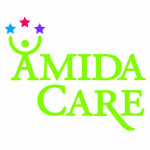New York, New York
Positive since 1990
I was diagnosed in New York City in 1990 and was told I had six months to two years to live. I felt betrayed by the man that gave it to me. I felt like damaged goods and thought nobody would understand me, much less love me. I self-medicated and went on a self-destruct mission in every way possible: drugs/violence/prison and toxic relationships.
It’s been 25 years since then and now I am undetectable, drug-free and working in harm reduction as a peer educator while I finish my education in social work at Hunter College.
You have to invest in yourself, research your medications and be proactive in your life because even the professionals don’t always have the answers. I was told I was bipolar for years and went on medications that made me feel more uncomfortable. It turns out I have post-traumatic stress disorder, and I am OK with that because I use my resources and go to therapy that is applicable for me.
I love animals. Volunteering with abused and neglected animals at the Animal Control Center taught me how to feel again. The joy and hope that I have acquired in healing and learning to love myself and others in a healthy way far outweighs the harshness of removing my masks and facing life. You only have one life and one body, so you have to nurture yourself and learn what self-worth really is. Not the make up and the fake tan and resorting to negative attention because the fear of being forgotten or invisible is painful, but the smile that comes from within one’s mind, body and soul.
What three adjectives best describe you?
Funny, witty and compassionate
What is your greatest achievement?
Getting off drugs
What is your greatest regret?
The needless pain and suffering cycle that I was stuck in
What keeps you up at night?
Nothing. I am emotionally drained and I work out, so it’s not a problem.
If you could change one thing about living with HIV, what would it be?
The side effects of the medications
What is the best advice you ever received?
Your thought and attitudes can become a disease themselves if you let your insecurities and bitterness be your main focus.
What person in the HIV/AIDS community do you most admire?
A man named Ken Siegal who was a director at Rural Opportunities at Albion Correctional Center who educated women about HIV/AIDS and other STDS. He took me under his wing. I was a Living with AIDS Speaker.
What drives you to do what you do?
I was so bitter, scared, confused and sad—not to mention lonely—when I found out I was HIV positive I didn’t know how to ask for help or what kind of help I needed. It was a miserable existence, and I hope I can change that for someone else.
What is your motto?
If you have been traumatized and dealt a rough hand, don’t pick up where others left off. Enough damage has been done.
If you had to evacuate your house immediately, what is the one thing you would grab on the way out?
My pictures and my journals because they are a part of me
If you could be any animal, what would you be? And why?
A pitbull, because they have been fought, labeled and discarded and they are the most lovable and loyal dogs around. I relate to seeing them damaged emotionally and physically waiting to be loved.








2 Comments
2 Comments